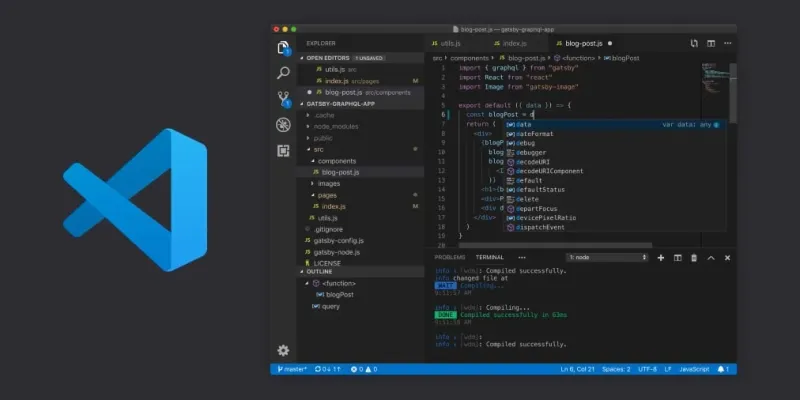Clean-Code
-


Give Up Sooner
Jan 28, 2024 by Lane WagnerAs a developer, how many times each day do you look something up online? I’m not talking about a simple piece of syntax, I’m talking about the things that are a bit harder to find.
-


You're Not Qualified to Have an Opinion on TDD
Nov 07, 2023 by Lane WagnerOne of the marks of a good senior developer is that they have lots of interesting opinions.
-


I Mock Your Mocks
Jul 13, 2023 by Lane WagnerSeveral years ago I started my first job as a “senior” Go developer. You see, after a modest 3 years in the industry, my arcane ability to use the Go standard library’s strings.
-


Programming types and (incorrect) mindsets
May 08, 2023 by Lane WagnerDHH, the creator of Ruby on Rails, Hey, Basecamp, and a few other things, recently wrote an article titled “Programming types and mindsets”, and I just have to chime in on this one.
-


Your Architecture is Bad, So Make It Easy to Change
Feb 10, 2023 by Lane WagnerHave you ever started a new software development job and thought: “Wow, what a beautifully architected system!
-


Snake Case or Camel Case? A Guide to Programming Naming Conventions
Dec 09, 2022 by Lane WagnerThe following names are all valid variable names in nearly every programming language: dogName dog_name DOG_NAME dog-name But which one should you use in your projects?
-


Your Code isn't Correct
Nov 29, 2021 by Lane WagnerThere is a common trap that we fall into as developers, and it is believing that because some code “worked” that the code was written “correctly”.
-


Death, Taxes, and Database Migrations
Aug 17, 2021 by Lane WagnerIn this world, nothing can be said to be certain, except death, taxes, and migrations.
-


What are UUIDs, and are they better than regular IDs?
Jul 23, 2021 by Lane WagnerIn the context of back-end web development, an ID is just a unique identifier for a record of data.
-


Beautiful Language and Beautiful Code
“Dead Poet’s Society” is a classic film, and has become a recent favorite of mine. There’s a scene in particular that I enjoy, where Robin William’s character explains that it’s bad practice to use terms like “very tired” or “very sad”, instead we should use descriptive words like “exhausted” or “morose”!
-


Check for Standards Before Creating a New One
Jun 07, 2021 by Lane WagnerI recently had a ticket opened on my team’s backlog board requesting the ability to bypass our API’s caching system.
-


Backend Developers are UX Designers Too
Apr 12, 2021 by Lane WagnerToo often I neglect the idea of UX design in backend work. The goal of user experience design is to give users a product that’s easy to use.
-


Naming Variables the Right Way
Apr 01, 2021 by Lane WagnerI’ve noticed that bugs introduced into an existing code base are often due to poor variable naming more than one might suspect.
-


Top 8 Benefits of Functional Programming
Feb 25, 2021 by Lane WagnerFunctional programming is a way to write code where programs are created strictly through functions. Functional programming has gained quite a bit of traction in recent years among the development community, mostly because of the benefits it provides.
-


What Is Dry Code, and Is It Always A Good Thing?
Jan 25, 2021 by Lane Wagner“Don’t repeat yourself”, or “DRY” for short, is a somewhat controversial principle of software development. It aims to make code cleaner, which is to say less buggy and easier to work with.
-


Best Practices for Commenting Code
Oct 29, 2020 by Lane WagnerI often hear that we need more and better comments in the code we write. In my experience, we frequently need better comments, we rarely need more, and we sometimes need less.
-


The Nuances of Constants in Go; Go Isn't JavaScript
Oct 22, 2020 by Lane WagnerConstants can be confusing and easy to misuse in Go if you are coming from an untyped language.
-


Practical Patterns for Technical Writing
Sep 22, 2020 by Ben BartenWriting technical documents like API or architectural documentation which exceeds a simple flow diagram can be a daunting task.
-


Guard Clauses - How to Clean up Conditionals
Sep 06, 2020 by Lane WagnerOne of the first concepts new developers learn is the if/else statement. If/else statements are the most common way to execute conditional logic.
-


Slow Is Smooth, Smooth Is Fast - 25% of Our Time Refactoring
Sep 01, 2020 by Lane WagnerMy team has been spending less of our “free” time working on bugs and features from the backlog, and more time refactoring our code and tests.
-


How to Get Consistent Line Breaks in VS Code (LF vs CRLF)
Jun 18, 2020 by Lane WagnerHave you ever had the problem where you submit a pull request and the diff is much larger than it should be?
-


Singletons in ES6 - The Good, The Bad, The Ugly
Nov 04, 2019 by Lane WagnerSingletons are fairly controversial as far as I can tell, especially in JavaScript programming. Let’s take a look at what they are, when to (maybe) use them, and when not to.
-


Systems and Processes that Aren't in Code are Terrifying
Oct 03, 2019 by Lane WagnerMy worst enemy is processes that a developer spun up years ago on a server everyone has forgotten about.